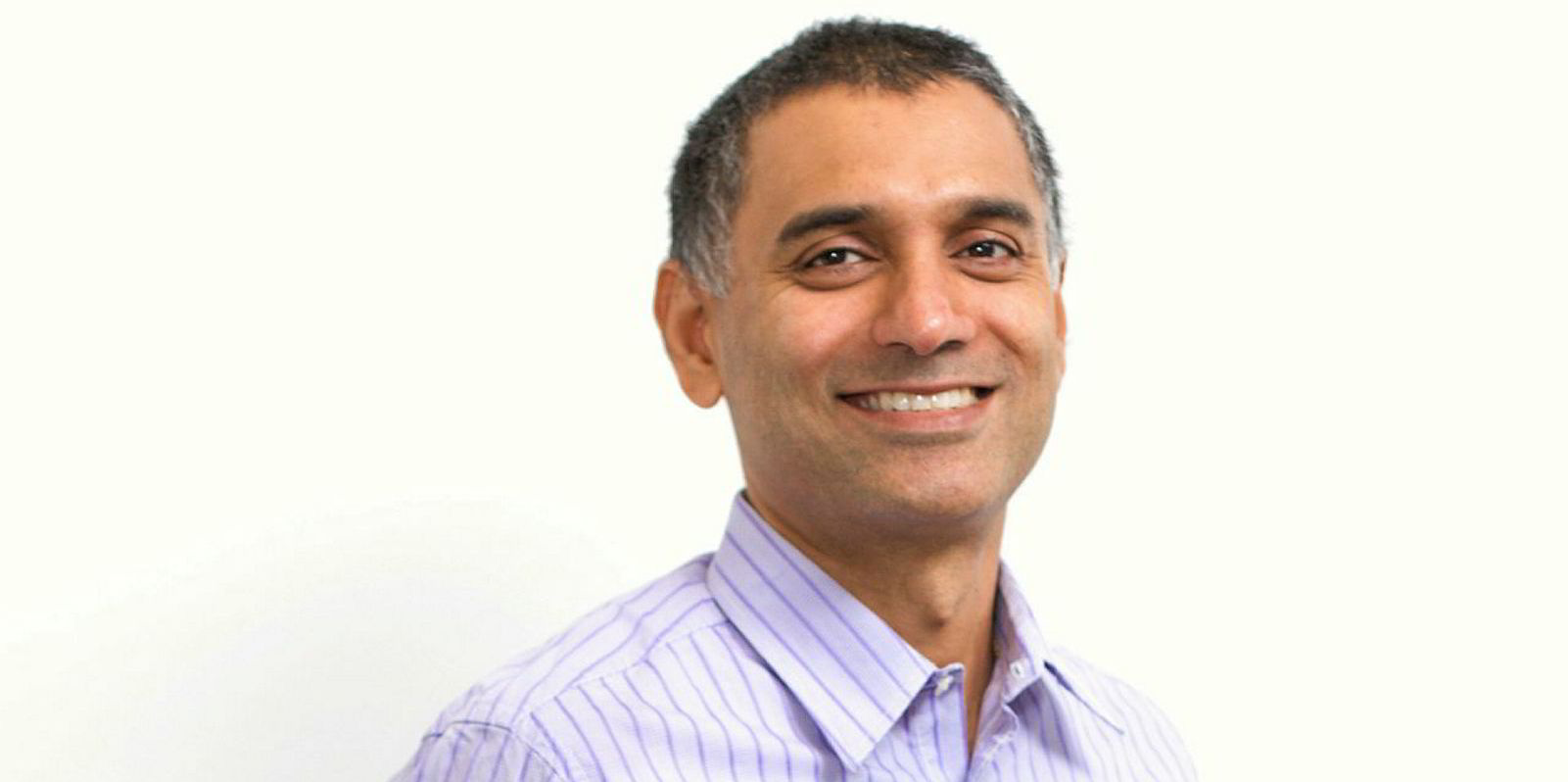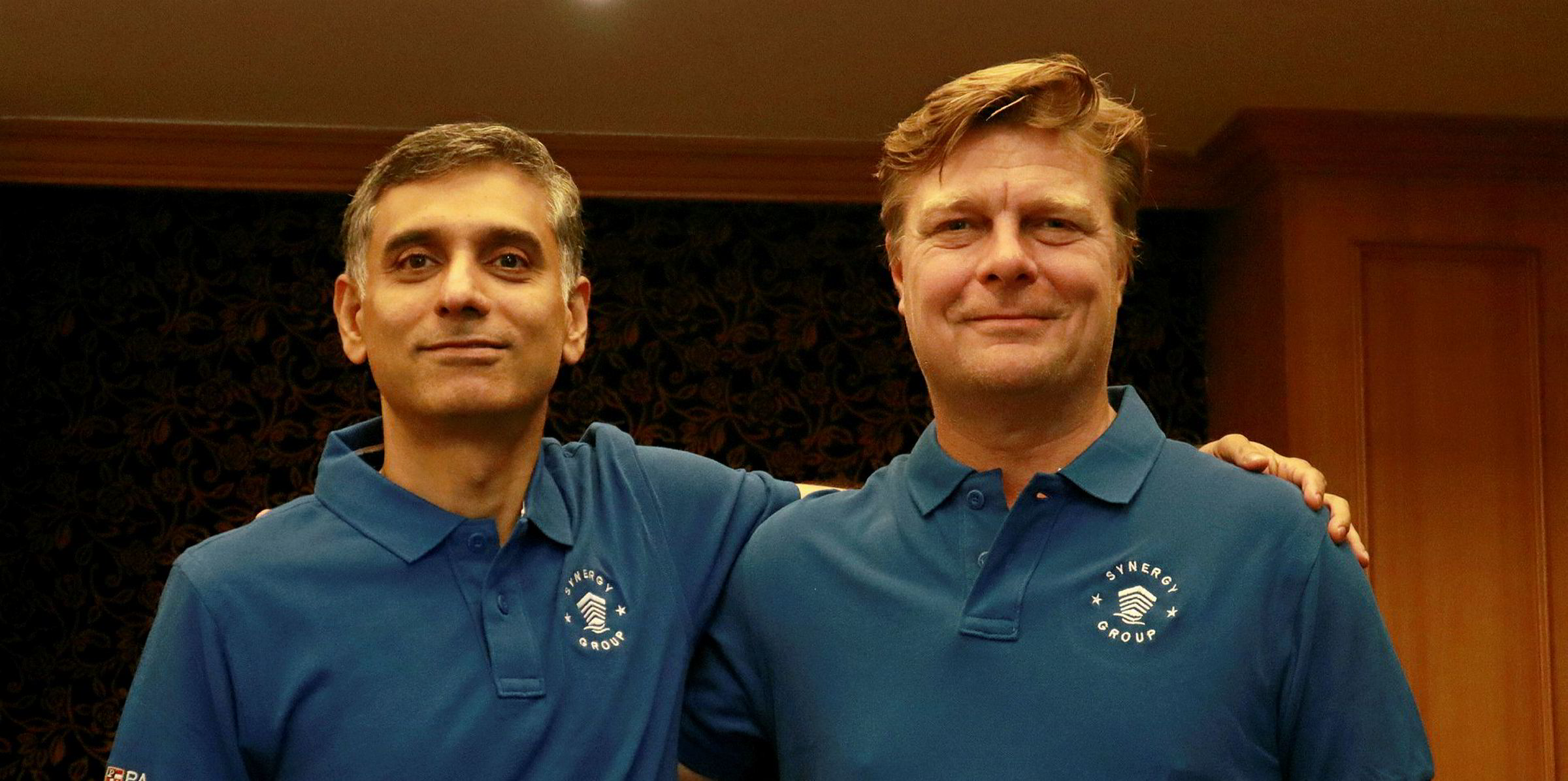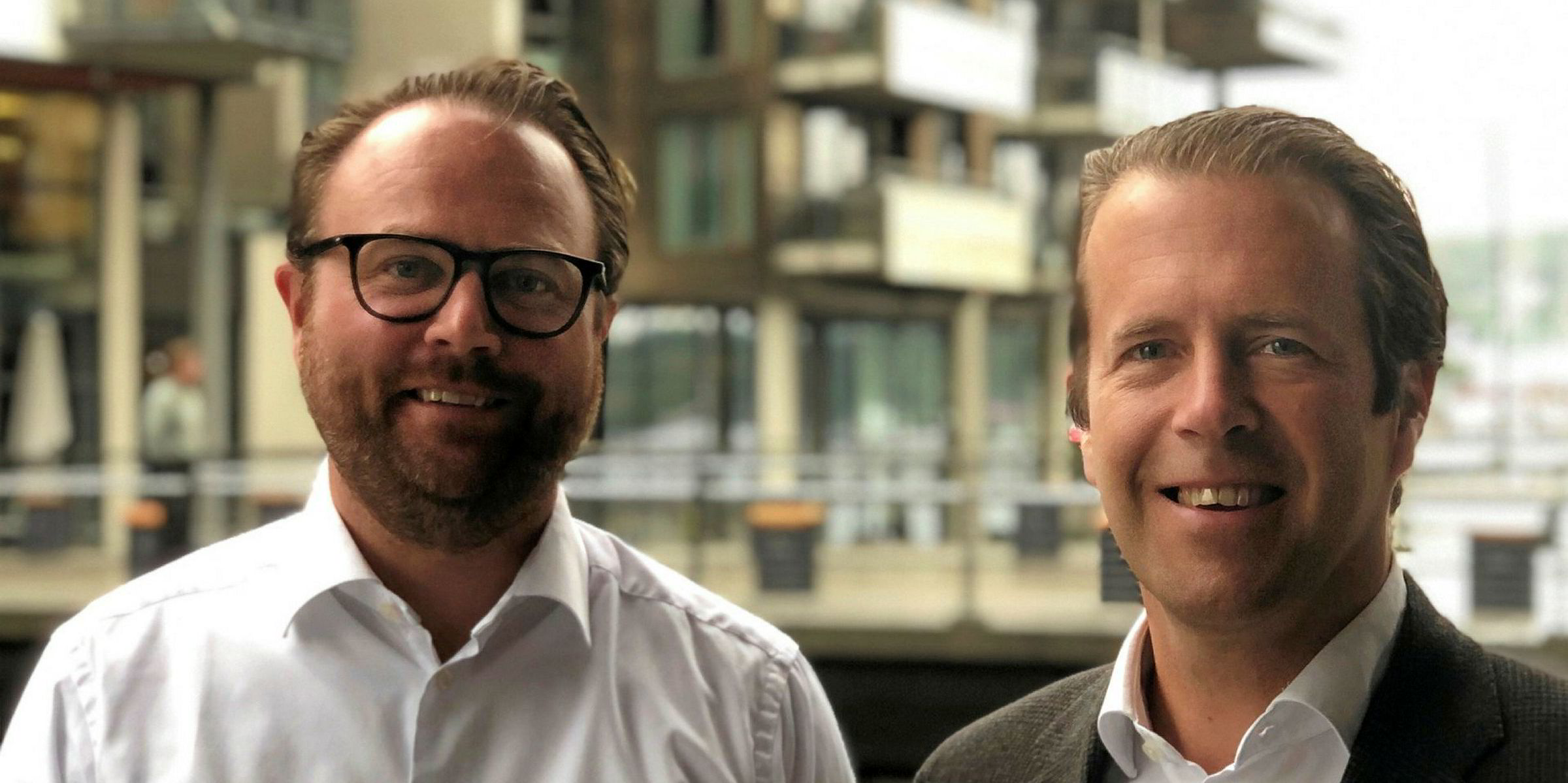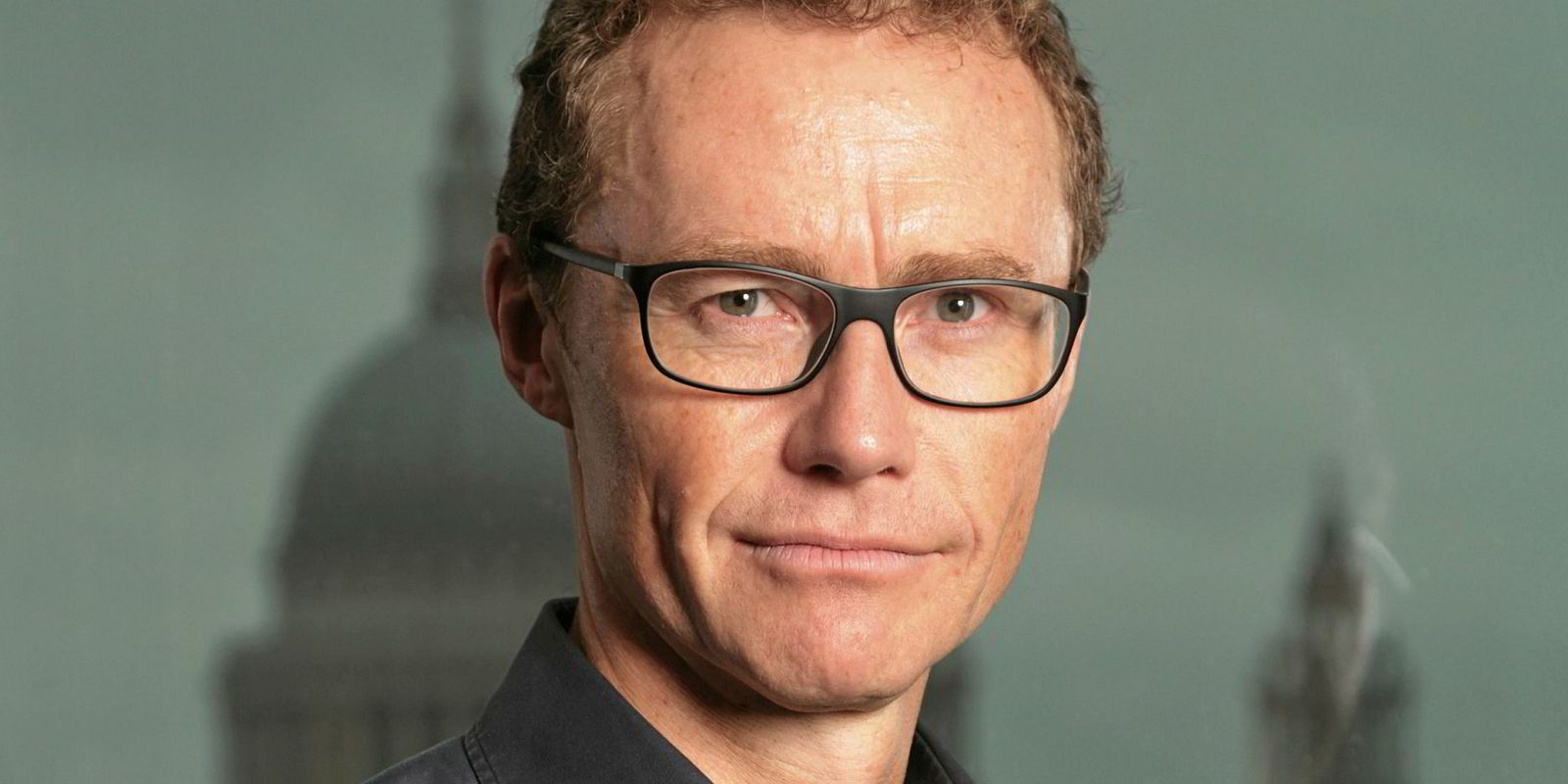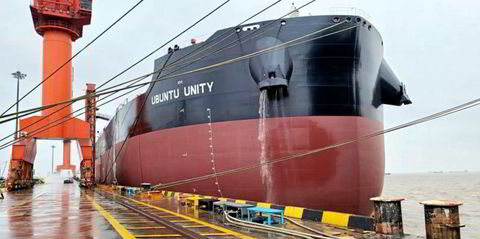The maritime industry must stop paying lip service to sustainability if it wants to make any headway in tackling environmental concerns, according to Synergy Group chief executive Rajesh Unni.
He said the sector needs to come up with and implement actual solutions to address these challenges — especially preserving the natural environment.
"It is something that we all need to take very seriously because, if not, I think we will all have some tough times going ahead," he told TradeWinds.
"We need to support any initiative that is towards addressing this planet crisis," he said.
The IMO is forcing the slow-to-change industry to burn cleaner fuel over coming decades, most recently with the implementation of a 0.5% sulphur limit on bunkers.
The London-based regulator will also require the world's fleet to lower greenhouse gas emissions by 40% by 2030 and 50% by 2050.
Unni believes shipping must act now on reducing atmospheric CO2 levels, which have escalated 25% to 400 parts per million over the past few years.
"If the CO2 emissions continue to rise, then I think it is beyond doubt that it will catastrophically affect our way of life," he said. "How, then, are we to minimise consumption of fossil fuels?"
Unni, a former tanker master, founded Synergy Marine in 2006 as a Singapore-based shipmanager that now cares for more than 270 vessels.
He also established Singapore-based maritime IT firm Alpha Ori Technologies in 2016.
But, today, he said the most pressing challenge is the environment.
SMARTShip to the rescue
To that end, Unni said Alpha Ori developed SMARTShip, the digital fuel optimisation programme that collects and analyses data to determine the most efficient use of fuel.
"We get these systems to talk to each other and determine what is the most optimal course speed that you need to set given the cargo and the weather and whatever other concerns you may have to determine the most efficient fuel consumption you could have for this particular voyage," he said.
Unni said Alpha Ori installed the programme — developed in alliance with the Maritime and Port Authority of Singapore — on more than 40 ships and has signed up a further 60 vessels to use it.
"You have to give people not something that is another 'good to have' but that is another 'need to have', so that they can be a better organisation and operate their assets in a better way," he said.
Shipowners using SMARTShip include BW LPG, Navios Maritime Holdings, Lauritzen Bulkers, Fairfield Chemical Carriers and the shipping arm of US energy giant Chevron.
Catching carbon
For the past three years, Unni said Synergy Group has worked on turning carbon-capture technology into a viable alternative to lowering CO2 emissions from larger ships.
ExxonMobil is working with companies such as US-based FuelCell Energy to develop it in such a way that fuel cells turn CO2 discharge from coal-fired power plants into clean energy.
"There have been very few approaches that have successfully converted CO2 into an energy carrier in an efficient way," he said.
"We are now trying to see how it can be scaled, be made viable and applicable to the marine systems on larger ships, in a way that aligns with the goals that the IMO has set us to beat.
He is tight-lipped on the outfit's progress, only saying it is working with a US college "renowned for its technical and research expertise" on carbon capture.
"We hope to be able to tell you more in the coming months, or as soon as we can reveal more about the results of our efforts thus far,” he said.
He added that catching CO2 emissions onboard ships and turning them into sustainable power would certainly be better for the environment than using scrubbers to meet IMO 2020 targets.
"I feel that taking something from [the] air and pushing it down into the marine environment is not the most ideal solution," he said. "We are working on something."
This story has been amended since publication to reflect that SMARTShip was developed in alliance with the Maritime and Port Authority of Singapore.
